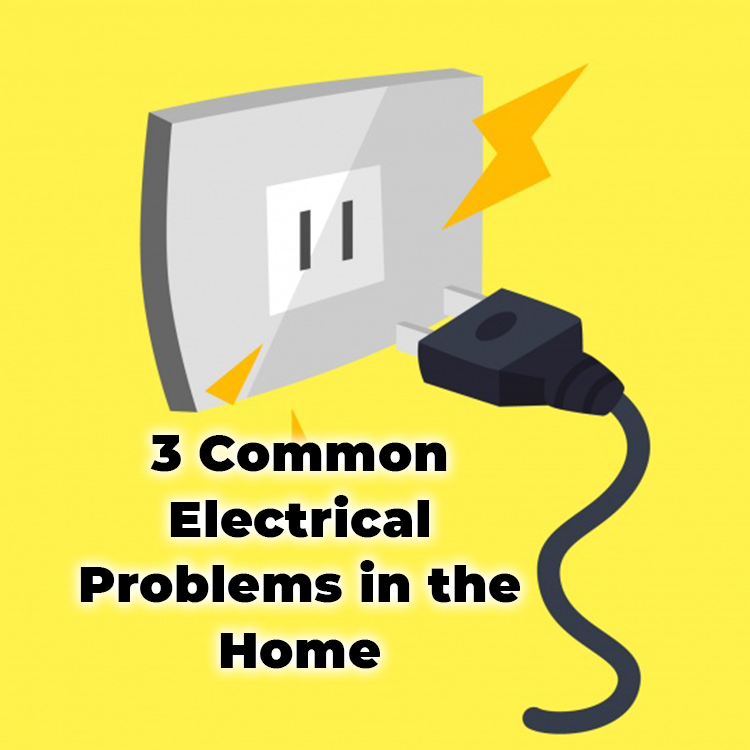We offer a wide range of services for that fresh look, or just maintenance or updates to keep your home functioning and safe. Regardless of the size of the job, we have a craftsman that can tackle it. We offer a wide range of services for that fresh look, or just maintenance or updates to keep your home functioning and safe. Regardless of the size of the job, we have a craftsman that can tackle it.

Home Improvement / June 22, 2021

Your home contains many different systems, such as plumbing, HVAC, and electrical. The average home contains an enormous number of moving parts, and all of them will eventually need some sort of maintenance. While some home maintenance tasks are simple to handle yourself, electrical problems can be dangerous and should always be left to a professional. Learn what causes some of the most common household electrical issues and why you should always contact an experienced electrician in Ottawa if you encounter one of these problems.
A tripped circuit breaker is the result of that circuit being overloaded. Each of your home’s electrical circuits is capable of carrying a set number of amps. When your microwave attempts to draw more power than its circuit can handle, the breaker cuts off electricity to that circuit.
If your microwave is frequently tripping its breaker, this could be due to a defect in the microwave that is causing it to draw too many amps. The far more likely cause, however, is that the electrical circuit is insufficient. Microwaves require a lot of power, and they didn’t become household standards until the late 1970s. If your home was built before that time, your circuitry likely needs an upgrade. Not only have microwaves and other appliances become more powerful over the years, but the typical number of electrical devices plugged into home circuits has also skyrocketed.
Constantly tripping a circuit breaker can quickly wear the breaker out. If the breaker is unable to trip, your wiring could overheat and cause an electrical fire. A professional electrician can assess your circuitry and help upgrade your wiring to safely meet your electrical needs.
Sometimes, lights may flicker because of a problem with the light bulb, or because the light’s plug has come loose from the outlet. Check the bulb and connection to see if this resolves the issue.
If not, another reason that lights flicker is because of a sudden change in the total voltage of electricity that your house is using. This can be normal and isn’t always a cause for concern, such as lights that briefly flicker when your air conditioner kicks on.
However, flickering lights, especially if the flickering is constant, can also indicate a more serious electrical problem, such as circuit overloads, fluctuating voltage, worn or outdated wiring, and loose or faulty connections. If not addressed, these issues could create a fire hazard. An experienced electrician can inspect your wiring and resolve any problems.
During home renovations, it’s not unusual to find old wires that appear to be disconnected in your home’s walls or ceiling. Furthermore, especially with DIY remodelling projects, you could be left with exposed wiring at the end of the project.
It’s best to remove old and unused wiring when you have the chance. This wiring makes it more difficult for an electrician to access and diagnose your current electrical system. It can also lead to drafts and rodent problems. Never attempt to remove old wiring on your own. A licensed electrician can determine whether the wires are truly dead and ensure that removing them will not disrupt any live connections.
Exposed wiring is a dangerous fire hazard. Professional electricians have the tools and equipment to quickly and easily make sure any wires are safely covered and supported.
If you’re experiencing these issues, or any other electrical problems, always call an electrician right away. Never ignore electrical issues or try to fix them yourself. At Handyman Connection, we offer a wide variety of electrical repair services performed by highly trained, licensed professionals. Contact us today to schedule an inspection or request a an estimate.